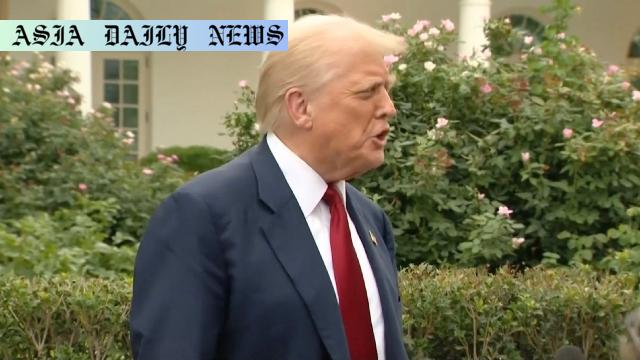Trump’s dismissal of labor statistics commissioner draws major pushback, raising credibility concerns for US economic data.
- Trump dismissed the Labor Department’s statistics chief amid job data disputes.
- Critics argue the decision undermines US economic statistics’ credibility.
- Supporters, including Secretary Chavez-DeRemer, back his stance on data fairness.

Trump’s Controversial Decision: Firing Labor Statistics Chief
On Friday, US President Donald Trump’s decision to dismiss the commissioner of the Bureau of Labor Statistics was met with strong reactions. The abrupt action followed a contentious downward revision of employment figures in May and June, which Trump accused of being manipulated to undermine his administration. Claiming the data was “rigged” for political reasons, Trump ordered the removal of the top official responsible for labor statistics.
While the move has garnered support from key figures in his administration – such as Labor Secretary Lori Chavez-DeRemer, who emphasized the importance of maintaining fair and accurate employment data – it has drawn sharp criticism from economic experts and institutions. Many argue that this decision could damage the credibility of US economic data, which has long been regarded as a global benchmark.
Economic Experts and Public Backlash
A group of economic experts, including figures who served in Trump’s administration, released a statement denouncing the firing. They highlighted the critical role of unbiased, reliable federal statistics in shaping informed economic policies. The statement described US labor statistics as the “gold standard globally,” emphasizing their importance in maintaining public and investor confidence.
Renowned economist Ernie Tedeschi voiced his disappointment, stating, “Nothing would be worse for US credibility than political meddling in our economic data.” Tedeschi praised the ousted commissioner for their commitment to truth and data integrity, further fueling the narrative that the dismissal was politically motivated.
Impact on Credibility and Policy
The repercussions of such political interventions in economic statistics could be far-reaching. Critics argue that undermining institutions responsible for accurate and impartial data erodes trust and creates uncertainty in financial markets. The potential for long-term economic consequences – such as skewed policy decisions and diminished investor confidence – looms over this controversial move.
As debates continue, this incident serves as a reminder of the delicate balance required to uphold institutional integrity while addressing political concerns. It underscores the need for transparent and nonpartisan oversight of entities tasked with gathering and reporting critical data that impacts the economy at large.



Commentary
The Risks of Politicizing Economic Data
President Donald Trump’s decision to fire the head of the Bureau of Labor Statistics has triggered widespread debate about the role of politics in data reporting. In a world increasingly dominated by misinformation and mistrust, preserving the credibility of national institutions is paramount. This firing, viewed by critics as a politically charged move, raises questions about the independence and reliability of US labor statistics.
The US economy relies on accurate and unbiased data to make informed decisions. Economic figures like employment rates reverberate globally, influencing market trends, policymaking, and investor behavior. Any hint of political interference not only jeopardizes trust but also poses a direct threat to the nation’s economic stability. Economists, public officials, and global observers alike are justified in their concerns over this controversial dismissal.
Balancing Transparency and Accountability
The friction between political oversight and institutional autonomy is not new. Those supporting Trump’s actions argue that accountability and transparency demand strict scrutiny of how data is gathered and analyzed. On the other hand, the immense global trust in US economic statistics stems precisely from their independence from political influence. Crossing that line risks undermining decades of credibility built on impartiality and scientific rigor.
The key takeaway from this episode is the urgent need to reaffirm the independence and neutrality of institutions that uphold economic data. In doing so, policymakers can ensure that national priorities and global confidence remain intact, fostering long-term economic stability amid political change.